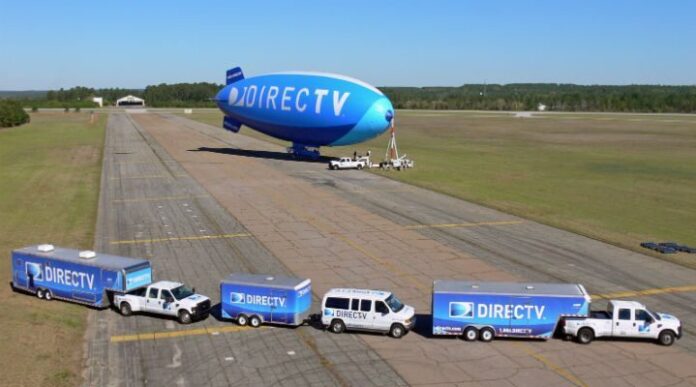Report: AT&T agrees to conditions; T-Mobile US garners roaming support
AT&T has reportedly agreed to government conditions that will allow the company to move forward with its attempt to acquire satellite television provider DirecTV.
According to the New York Post, AT&T has agreed to conditions set by the Department of Justice to gain approval of its pending $48.5 billion acquisition that was announced earlier this year. Terms were not released, but the report claims the move should allow the acquisition to be approved in October.
The Federal Communications Commission would also need to sign off on the deal. The FCC last month set up a steering committee to oversee the deal as well as a pending deal between Comcast and Time Warner Cable.
AT&T claimed the deal will bolster its ability to offer video content across multiple platforms, with DirecTV increasing the company’s pay-TV presence that it currently based on its U-verse fiber product. DirecTV counted just more than 20 million pay-TV customers at the end of the first quarter, while AT&T said it had just more than 11 million subscribers to its U-verse broadband and pay-TV offer.
As part of its initial offer, AT&T said it would bid at least $9 billion in the FCC’s planned 600 MHz incentive auction scheduled for next year if there is sufficient spectrum made available for a nationwide 20 megahertz footprint. The incentive auction relies on a reverse-auction process that will see television broadcasters turn in spectrum holdings in exchange for cash, though the total amount of spectrum made available for the telecommunications industry won’t be known until the reverse-auction process is complete.
—A pair of trade associations last week asked the Federal Communications Commission to clarify data roaming regulations in the wake of a petition filing on the matter from T-Mobile US.
The Competitive Carriers Association and the Rural Wireless Association both filed comments asking the FCC to provide additional insight into the “commercially reasonable” wording in its data roaming rules. The comments were connected to a May filing by T-Mobile US to take another look at previously approved data roaming rules that it claimed were not meeting the FCC’s guidance.
The FCC initially adopted mandatory data roaming rules in 2011, declaring wireless operators must work to reach “commercially reasonable” terms for data roaming agreements. The ruling was seen as a victory for smaller operators that claimed they were being prevented from offering nationwide services to their customers.
CCA and RWA asked the FCC to grant T-Mobile US’ petition request. CCA President and CEO Steve Berry explained that even with the adoption of the data roaming order, some carriers continue to face “significant challenges reaching data roaming agreements with the largest carriers.”
“It is well within the FCC’s authority to provide additional guidance and clarification on the commercially reasonable standard, and the arguments given by Verizon and AT&T against providing this clarity don’t hold water,” Berry added. “Ensuring carriers have access to reasonable and reliable data roaming will benefit consumers, the economy and the industry as a whole, and I strongly urge the FCC to act now to provide carriers with this critical information.”
RWA echoed that sentiment, with assistant general counsel Daryl Zakov stating: “RWA strongly urges the commission to clarify that wholesale data roaming rates are per se commercially unreasonable if they exceed, by any degree, the retail data rates ‘must have’ carriers like AT&T and Verizon charge their own retail customers for those very same data services.”
AT&T last month came out opposed to the T-Mobile US petition, claiming that its smaller rival was asking the FCC to “eviscerate” its previous ruling and upset the “careful balance” the FCC had established in “ensuring that mobile wireless providers can obtain data roaming arrangements on reasonable terms while preserving incentives to invest in broadband networks.”
“There is no justification for granting T-Mobile’s petition — in fact, according to T-Mobile’s own economist, wholesale roaming rates have trended ‘downward strongly’ in recent years, and the average wholesale roaming rates paid by T-Mobile have fallen nearly 70% since 2011 and continue to decline,” explained Joan Marsh, VP of federal regulatory affairs for AT&T.
—FCC Chairman Tom Wheeler appointed Scott Jordan CTO, succeeding Henning Schulzrinne, who is set to return to Columbia University, though will serve the FCC on a part-time basis as a technology adviser.
In his role, Jordan will serve as the senior adviser on technical matters across the government agency, including engaging with “technology experts outside the agency and promote technical excellence among agency staff.” Jordan, who previously served as a professor of computer science at the University of California, will be based in the FCC’s Office of Strategic Planning and Policy Analysis.
Make sure to keep up to date on policy news by visiting RCR Wireless News’s Policy page.
Bored? Why not follow me on Twitter?

